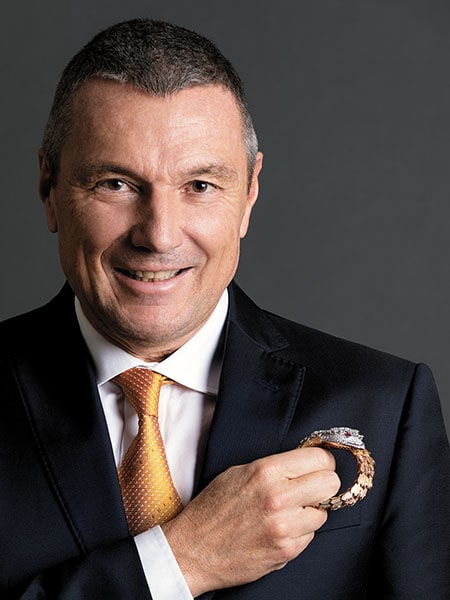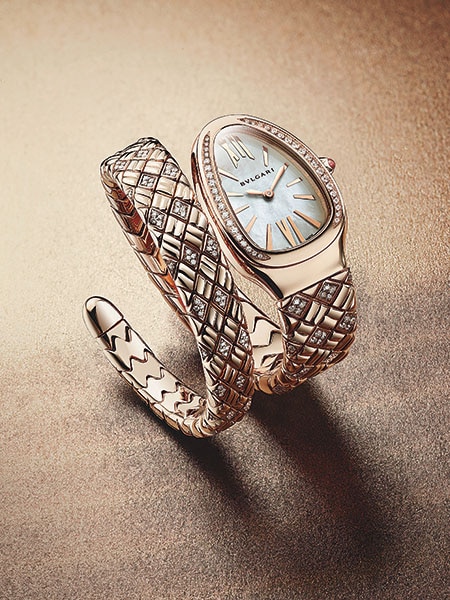
Covid-19 sped up existing trends in the luxury market: Bvlgari Group CEO
Jean-Christophe Babin talks to Forbes India on the impact of the pandemic on the luxury sector
 Jean-Christophe Babin
Jean-Christophe BabinQ. How did it feel to host this year’s LVMH Watch Week on a virtual platform in January, and how was the response?
We had experienced the virtual aspect last year with leading watchmaking events, such as the Dubai one and the Geneva Watch Days, which was physical for those who could travel to Switzerland, and digital for everyone else. They were successful because, thanks to high-definition video, a film about the product is often better than seeing the product with your eyes. I proposed we should do a completely digital event this January, as Covid-19 was making a comeback in Europe. We didn’t have the glamour of Dubai’s Bvlgari hotel, and swapped glamour for craftsmanship by opening the doors of our manufacturers, which is a fascinating experience.
Q. Have digital platforms enabled you to reach a wider audience compared to physical events?
What digital does is complementary in nature, and does not replace physical events. Bvlgari’s communication is about 60 percent digital, but 40 percent is still traditional—such as our presence at airports.
Through digital platforms like Facebook and Instagram, you can convey more messages more frequently, and you can also target younger generations who are reading less and less of print. Digital platforms help open up the brand to these clients. These platforms are also interactive, and help us feel the pulse of our followers. This is important because in market research, people are not as spontaneous as they are on social media. Digital platforms are also a strong driver for ecommerce. Clicking on a link lets people know more about a watch or a bag, and helps convince them about the product.
Q. A lot of sectors have faced the effects of the pandemic and the lockdowns. How has the luxury sector been affected?
Bain and Company, a consultancy, estimated that the luxury sector worldwide has declined by about 26 percent. LVMH released its results a few days ago, and declared a decline of 14 percent. LVMH globally has grown faster than competition and last year we declined less than our competition, thus gaining market share. This year, with the economic recovery on one hand, and with the addition of $4 billion from Tiffany & Co [LVMH completed the acquisition in January], our lead will be extended further. We are becoming the big leader in jewellery as well, in the same way that we are in fashion, fragrances and premium hotels.
Q. Which verticals of Bvlgari are now recovering the fastest?
We suffered more in the verticals of accessories and leather goods, because they were mostly purchased on travels. Traditionally, these categories have quite a big price gap between Asia and Europe, which is not the case with watches and jewellery.
Between watches and jewellery, jewellery has done a bit better than watches. But this is not related to the clientele. We are very strong in Asia with jewellery, and with the Chinese in particular. China was the first country hit by Covid-19, so we lost a lot of business there. Watches are more popular in Japan, rather than in the West and Middle East, where we are still growing.
When [the pandemic] shifted from Asia to Europe, watches suffered more than jewellery, and jewellery recovered because China was back on track. Jewellery recovered more because the Chinese started travelling internally. That has been the case in India also. Indians would buy a lot when travelling abroad. But with the severe travel restrictions, they began to buy within India. The country has seen one of Bvlgari’s best performances, alongside China and South Korea.So the scenario was related more to the strength of a category in a given geography and the phasing of Covid across the year.
 Bvlgari is strong with jewellery in Asia, so when China was the first country hit by Covid-19, the company lost a lot of business. When the pandemic shifted to Europe, the watch sales began to suffer
Bvlgari is strong with jewellery in Asia, so when China was the first country hit by Covid-19, the company lost a lot of business. When the pandemic shifted to Europe, the watch sales began to suffer
Q. Going forward do you think there should be any change in strategies so that largescale disruptions don’t affect the sector in a similar way?
Covid did not change the market, but accelerated some trends that we had already identified. With the growing number of millennials coming into the market, expectations are evolving towards more authentic, more crafted, more responsible products and services. Like all catastrophes, it also gives rise to an urge to indulge again. Because of the psychological shock of Covid, there has been demand for brands that are going beyond just their businesses, and showing generosity and compassion. This will become a factor a choice in the years to come while buying high-end products and services.
Q. What prompted Bvlgari to tie up with the University of Oxford to help Covid-19 vaccine development?
Everything started in February 2020 in Rome, where we have a qualified institute [the Lazzaro Spallanzani National Institute for Infectious Diseases] that has been doing pioneering antiviral research. We were partnering with it as soon as they discovered Covid, by financing medical instruments, and understood the virus would probably increase in the future because of demographics; even before vaccinations began there would be a short-term emergency around the world, with hospitals missing everything from masks to gloves and sanitising products and respirators.
So we asked the fragrances department if they could produce gels. It took us about 10 days to get the right formulations, and we became a major gel producer, donating 800,000 bottles to the Italian, Swiss and British governments.
We intensified our discussion around viruses and established the Bvlgari Virus Free Fund to be a part of those companies that were helping the war against viruses. It is a long-term commitment, and we selected institutes that were exceptional: Oxford is one of the best when it comes to viruses, whereas Rockefeller [University, in New York City] specialises in biomedical research. We will finance further researches into vaccines, and the ultimate dream that we have with Oxford and Rockefeller is to have a universal antivirus.
Q. Tell us about Bvlgari’s Flower Gems of India initiative, where it works with jasmine farmers in India.
Bvlgari fragrances are about 25 years old, and we have built part of our success on the Mon Jasmin Noir, a very successful women’s fragrance. And so jasmine, for us, is an important flower. When we decided to have jasmine-based fragrances, we decided to have our own jasmine that are not just of the best quality, but also sustainable. So we selected India to experiment with this, and we are proud that we got prime quality jasmine, which also guaranteed good living standards for farmers and the supply chain. We also secure good future harvests by ensuring that we don’t drain the soil of its nutrients.
(This story appears in the 30 November, -0001 issue of Forbes India. To visit our Archives, click here.)








